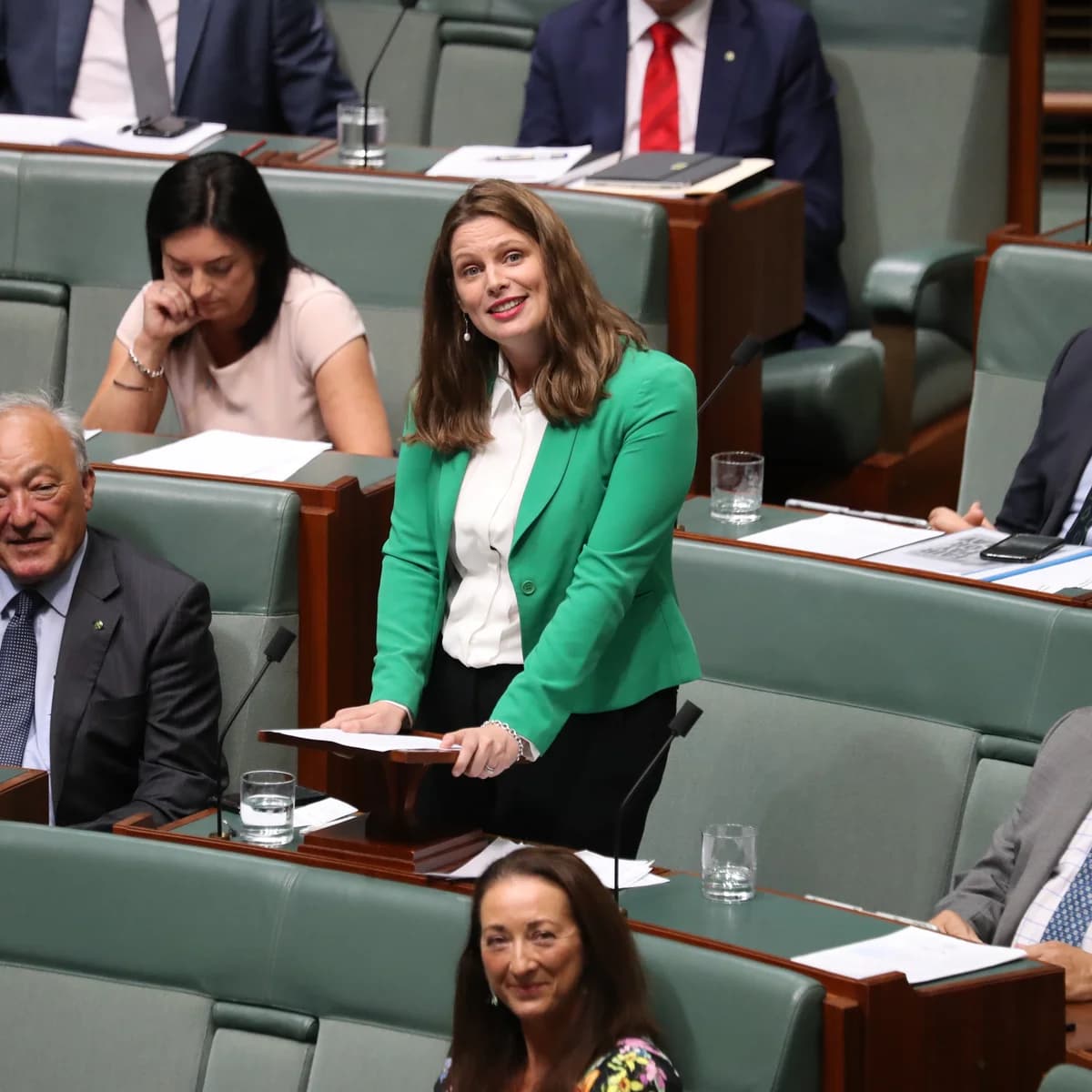We're loading the full news article for you. This includes the article content, images, author information, and related articles.
Australia's governing party has appointed a new president amid critical domestic debates on environmental law and economic policy, and as Canberra navigates shifting geopolitical tides involving the US and China.

Former Member of Parliament for Adelaide, Kate Ellis, has been elected as the new National President of the Australian Labor Party (ALP), the country's governing party. The announcement on Thursday, 30 October 2025 (EAT), confirms her succession to Wayne Swan, who has held the position since 2018. Ms. Ellis, who served in the House of Representatives from 2004 to 2019 and held several ministerial portfolios between 2007 and 2013, will formally assume the role at the party's 50th national conference in July 2026.
The appointment comes at a pivotal moment for the government of Prime Minister Anthony Albanese, which is concurrently managing significant legislative reforms, economic pressures, and complex foreign policy challenges. While the party presidency is an internal organisational role, its holder influences the party's direction as the government addresses issues with global resonance.
On the same day, the Albanese government introduced a highly anticipated and contentious bill to reform Australia's primary environmental legislation, the Environment Protection and Biodiversity Conservation (EPBC) Act. First enacted in 1999, the law has been criticised for years as inadequate, with independent reviews in 2009 and 2020 calling for a major overhaul. The proposed reforms aim to create a new national independent watchdog, the National Environmental Protection Agency (NEPA), and streamline project approvals for housing, renewable energy, and mining.
However, the bill has drawn sharp criticism from both opposition and environmental groups. The opposition's shadow environment minister, Angie Bell, stated it was “not our job to make a bad bill better,” signalling a difficult path for the legislation. Meanwhile, Greens leader Larissa Waters claimed the reforms contained loopholes so large “you could drive a mining truck” through them, expressing fears they would not adequately protect nature from extractive industries.
On the economic front, Treasurer Jim Chalmers has ruled out any new major economic policies until the federal budget in May of next year. This follows a period of global economic volatility, with Chalmers recently noting that risks to the outlook are “accumulating from every angle, all at once.” In some positive news for consumers, Energy Minister Chris Bowen predicted a fall in electricity prices for consumers, citing a nearly 40% drop in wholesale prices in the previous quarter due to rising renewable energy output.
In foreign affairs, Prime Minister Albanese described a recent meeting between US President Donald Trump and Chinese President Xi Jinping as a “positive development.” Speaking from the APEC summit in South Korea, Albanese expressed hope for an easing of trade tensions between the world's two largest economies, stating, “These are important relationships for Australia.”
The day's events in Australian politics were also marked by an internal complaint against prominent Nationals MP Barnaby Joyce, who denied allegations of a “verbal tirade” against a party staffer.
While the internal leadership of an Australian political party has no direct immediate impact on Kenyan affairs, the broader policy direction of the Albanese government carries significance for the region. Australia is a key Commonwealth partner and maintains strong diplomatic and trade ties with Kenya. The Australian High Commission in Nairobi also serves as a diplomatic hub for relations with Burundi, Rwanda, Somalia, Tanzania, and Uganda, as well as the East African Community (EAC).
Bilateral trade was valued at AU$115 million in 2018–19, and recent discussions between the two nations in October 2025 focused on deepening cooperation in mining, agriculture, and maritime security. Kenya has expressed a desire to benefit from Australia's advanced mining sector and to balance trade, which is currently in Australia's favour. Australia's stance on global climate action, shaped by domestic legislation like the EPBC Act reforms, and its diplomatic navigation of US-China relations are of strategic interest to East African nations, which are vulnerable to both climate change and shifts in global trade dynamics.
Keep the conversation in one place—threads here stay linked to the story and in the forums.
Sign in to start a discussion
Start a conversation about this story and keep it linked here.
Other hot threads
E-sports and Gaming Community in Kenya
Active 9 months ago
The Role of Technology in Modern Agriculture (AgriTech)
Active 9 months ago
Popular Recreational Activities Across Counties
Active 9 months ago
Investing in Youth Sports Development Programs
Active 9 months ago